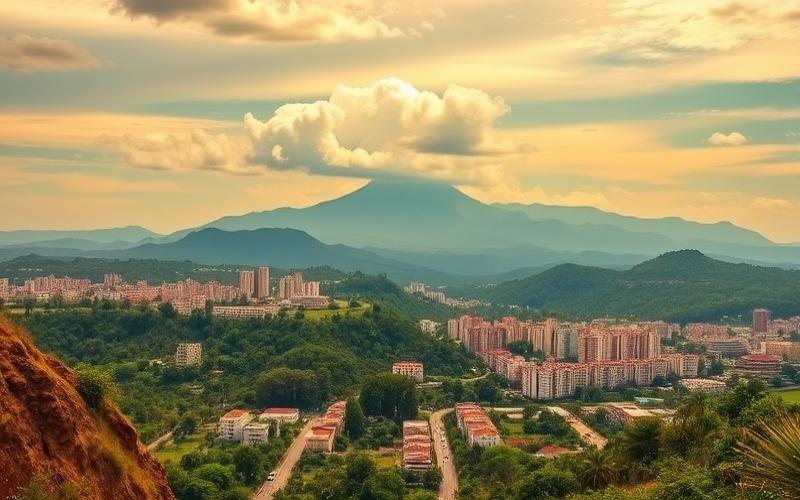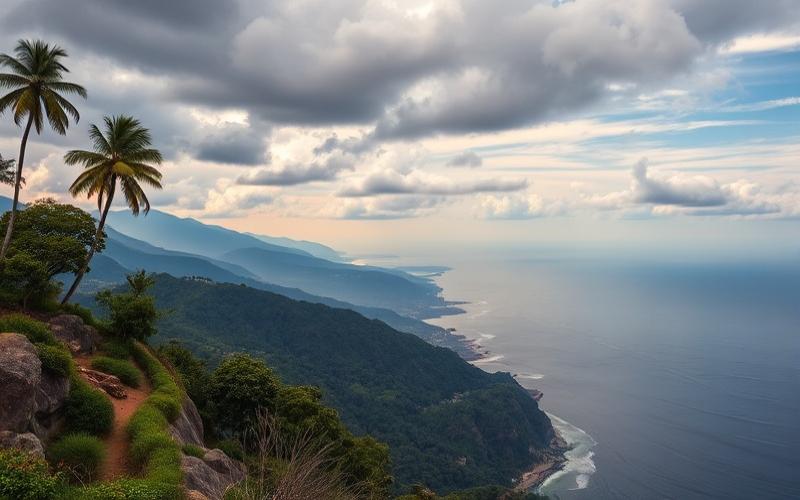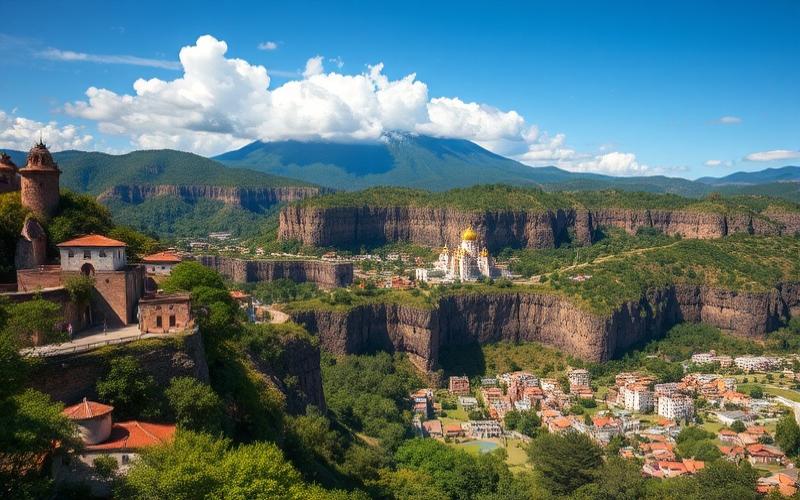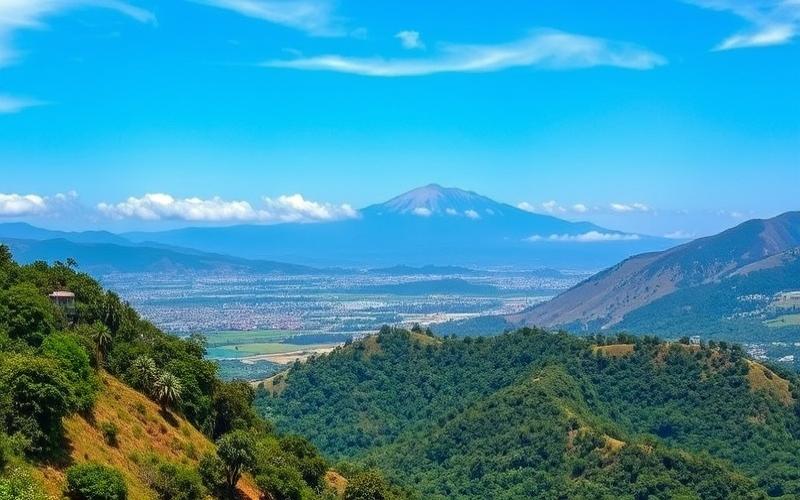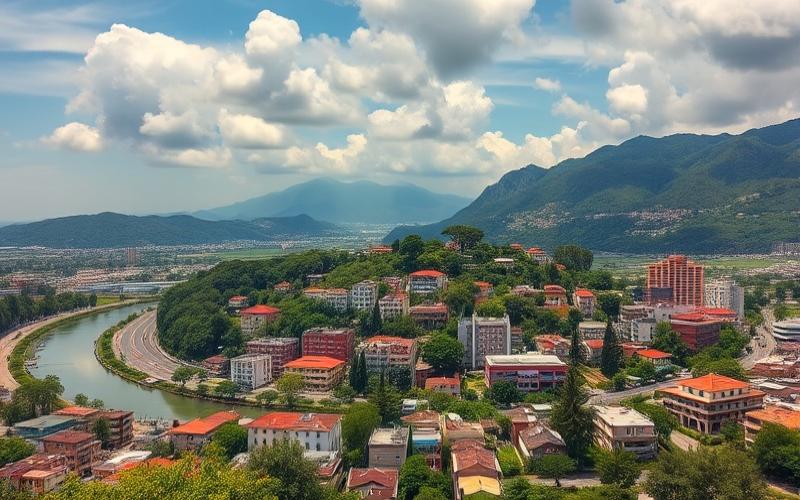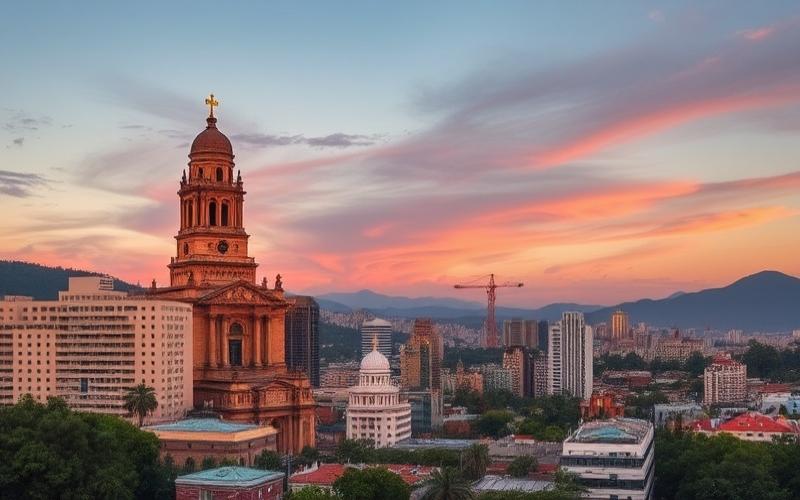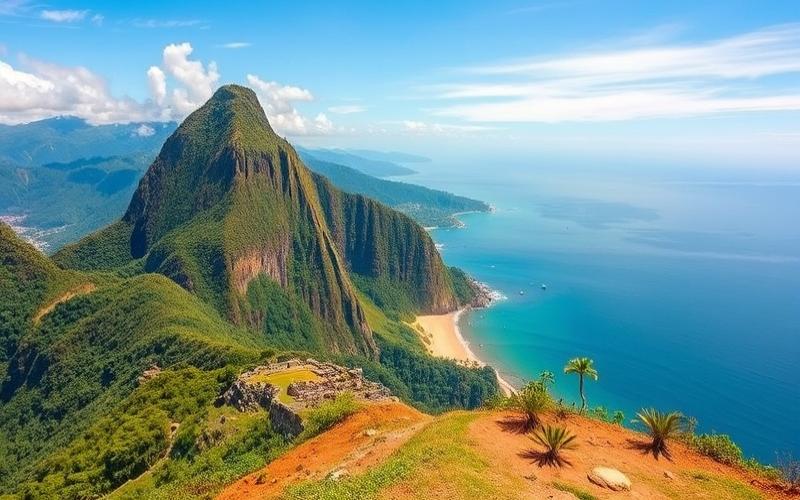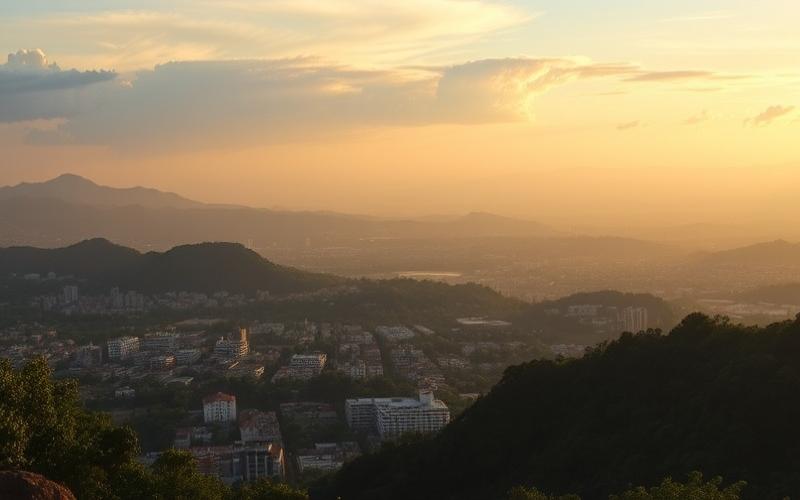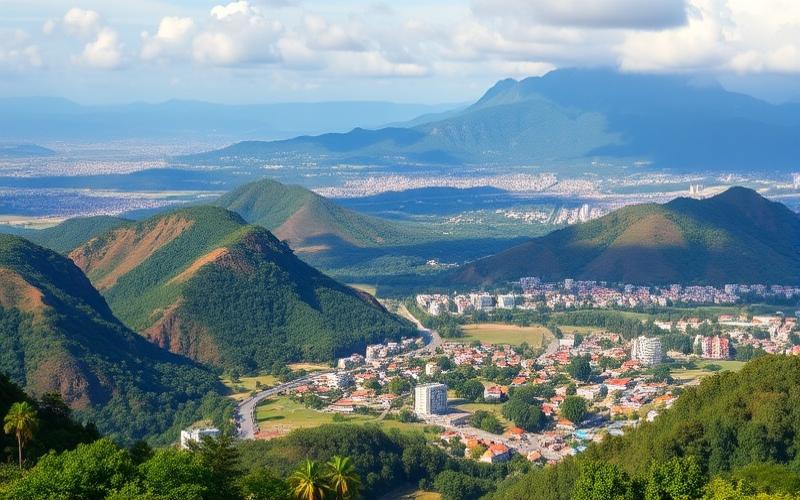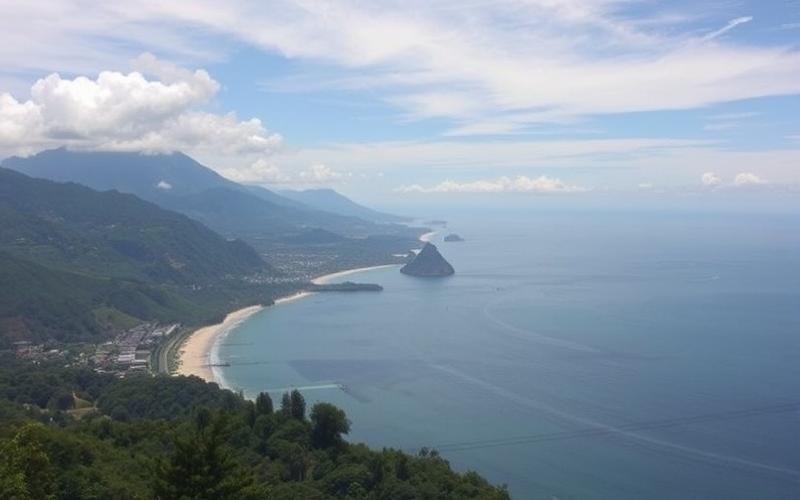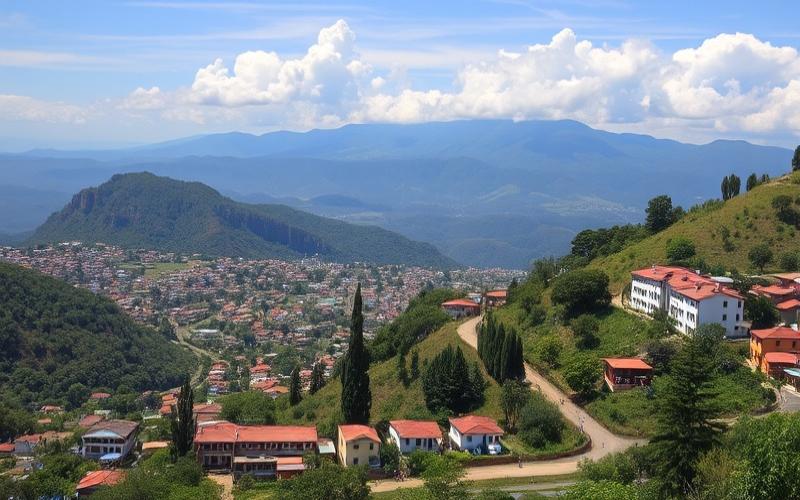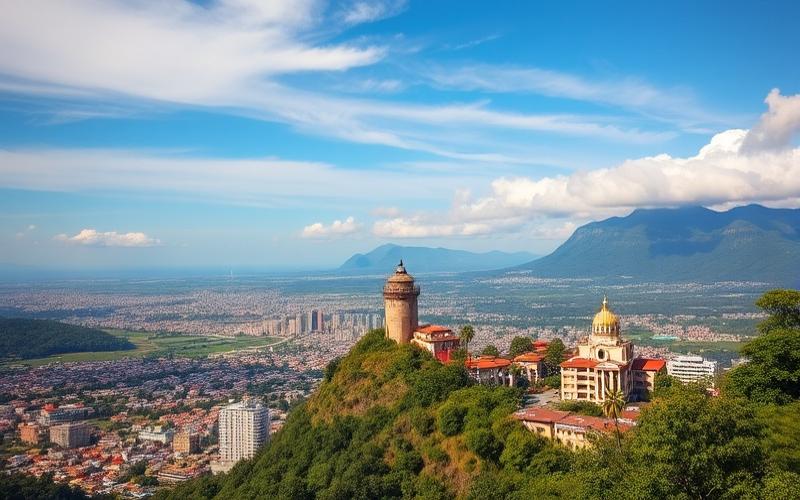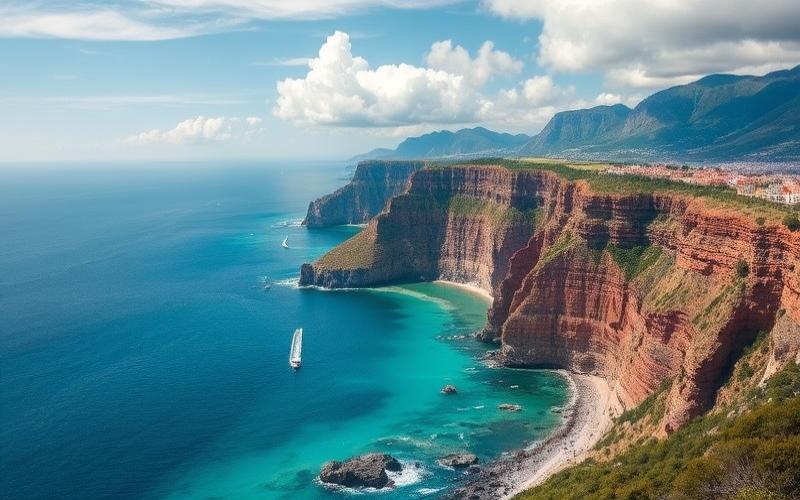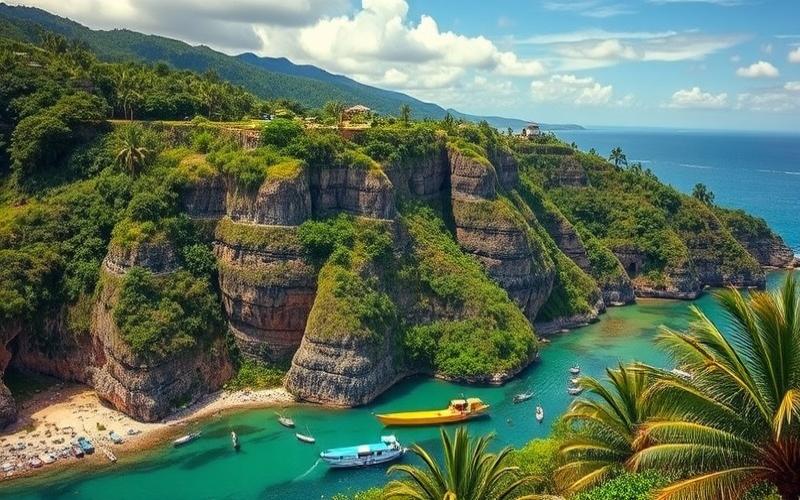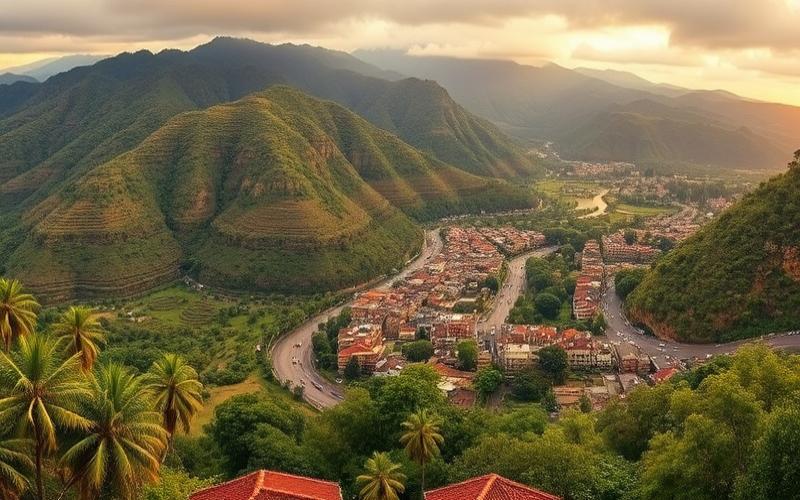
 Published on and written by Cyril Jarnias
Published on and written by Cyril Jarnias
Immersing yourself in El Salvador’s rich cultural mosaic often means navigating a complex set of local religious practices that play a central role in the daily life of its people.
For expatriates, understanding these spiritual traditions can not only ease their integration but also enrich their personal experience within the community.
Whether participating in vibrant religious festivals or respecting deeply rooted Catholic rituals, each interaction offers an opportunity to build deeper connections and discover an essential part of Salvadoran identity.
This guide invites you to discover the unique religious customs that shape the soul of this country and explore how they influence both daily events and major life moments.
Impact of Religious Practices on Daily Life in El Salvador
Religion holds a central place in daily life in El Salvador, structuring social rhythms, values, and interactions at all levels of society. The country remains predominantly Christian, but the balance between Catholicism and Evangelicalism is rapidly evolving.
Comparative Table of Religious Influence in El Salvador
| Life Aspect | Catholicism (Traditional) | Evangelical Churches (Growing) |
|---|---|---|
| Religious Practice | Sunday Mass, sacraments, processions | Dynamic worship, active evangelism |
| Community Impact | Patron saint festivals, parish mutual aid | Prayer groups, direct social support |
| Political/Social Influence | Engagement on ethical issues | Mobilization on family and moral themes |
| Celebrations | Holy Week, Christmas, saint feast days | Mass gatherings, public testimonies |
| Dominant Values | Respect for tradition, solidarity | Personal transformation, discipline |
Religious Festivals and Social Calendar
- Holy Week: Street processions, creation of colorful sawdust carpets, closure of schools and businesses, strong community mobilization.
- Christmas: Collective meals, fireworks, gift exchanges and greetings at midnight in neighborhoods.
- Patron Saint Festivals: Each town dedicates a week to its patron saint, with carnivals, culinary contests (especially pupusas), folk dances, rodeos, and election of the local queen.
- Day of the Cross (May 3): Decorated altars in front of houses to request a good harvest.
- Day of the Dead (November 2): Grave decorations and family gatherings in cemeteries.
List of Religious Practices and Values Influencing Daily Life
- Family, professional, and political decisions are often guided by religious principles, such as solidarity, honesty, and charity.
- Social interactions, including in the workplace, are imbued with respect for elders and friendliness inspired by Christian values.
- Blessing rituals (for a new house, business, vehicle…) are common, illustrating the desire to place every life stage under divine protection.
- In rural areas, religion intertwines with indigenous traditions: ritual dances, tributes to nature, community celebrations that strengthen local identity.
- Evangelicals organize gatherings in parks and streets, inviting conversion and personal commitment. A frequent anecdote: after worship, believers go to testify in hospitals or to people in difficulty.
Concrete Examples and Anecdotes
- An expatriate recounting his first Holy Week in San Salvador described the city as transformed: “The streets are quiet in the morning, then suddenly filled with processions where the whole neighborhood participates in creating colorful carpets. Neighbors invited me to walk with them, to share a traditional meal after the ceremony.”
- In a local company, it’s common to start an important meeting with a collective prayer, regardless of the field of activity.
- During patron saint festivals, the closure of shops and administrations is the rule, with each family mobilizing to prepare typical dishes, decorate the town, and welcome visitors.
Rituals and Local Traditions
- Folk dances like “Los Historiantes” or “Los emplumados de CACAopera” are performed during patron saint festivals, blending indigenous elements and Christian symbolism.
- In popular neighborhoods, street altars are set up during major festivals, and children are introduced from a young age to religious songs and processions.
Political and Social Impact
- Catholic and Evangelical churches play a moral arbiter role in societal debates, intervening on topics like violence, poverty, family, or the environment.
- Religious movements contributed to the ban on mining, mobilizing the population against threats to health and nature.
- Even marginalized groups, such as “mareros” (gangsters), often reference their faith in moments of crisis or repentance.
Key Takeaways for Expatriates
In El Salvador, religion is much more than a spiritual practice: it shapes calendars, relationships, lifestyles, and collective decisions. Integrating means understanding its codes, accepting invitations to celebrations, and respecting the structuring role of religious values, both in cities and countryside.
Good to Know:
In El Salvador, holidays like Holy Week and Christmas strongly impact work rhythms, with extended breaks in the professional calendar. The rise of evangelical churches influences social and political dynamics, while traditional religious values continue to define interpersonal relationships.
Major Religious Festivals and Their Significance
Religious and cultural life in El Salvador is strongly marked by three major celebrations: Holy Week, Christmas, and San Salvador Festival. Each shapes the country’s annual rhythm and manifests the collective identity of Salvadorans.
| Festival | Dates | Religious and Cultural Importance | Rituals and Traditions | Culinary Customs | Impact on Local Life |
|---|---|---|---|---|---|
| Holy Week | March/April | Commemoration of Christ’s Passion and Resurrection | Processions, penances, masses, Passion reenactments, crucifix decorations | Torrejas, empanadas de leche, tamales, meatless pupusas | School and administration closures, travel to beaches and villages, slowed pace of life |
| Christmas | December 24-25 | Christ’s birth, family gathering time | Midnight masses, “nacimientos” (nativity scenes), Christmas tree decoration, gift exchanges, fireworks, posadas navideñas | Panes con pollo, pupusas, tamales, sweet drinks (horchata, atol) | Family reunions, lively neighborhoods, night markets, impact on commerce and transportation |
| San Salvador Festival | August 1-6 | National patron saint festival, tribute to the Divine Savior of the World | Novena, adoration, grand procession, “bajada” (descent of Christ), queen election, fireworks, fair, traditional games | Typical dishes, street food, local drinks | Stoppage of activities, community gatherings, festivities in the capital and villages |
Holy Week
Celebrated during the week before Easter, it begins with Palm Sunday and culminates on Good Friday and Easter Sunday.
Processions are omnipresent, particularly in Sonsonate, where the effigy of the Virgin of Candelaria is solemnly carried.
Traditions include penances, ritual washings of crosses, and in some villages, spectacular reenactments of biblical scenes, like the Talciguïnes in Texistepeque, who symbolically whip passersby to represent the fight against evil.
Families share traditional dishes often without meat, marking respect for Lent.
On a community level, Holy Week is synonymous with solidarity, sharing, and spirituality. Travel to beaches and villages reflects a pause in active life and a refocusing on family and religious values.
Christmas
Christmas is mainly celebrated on December 24, with midnight mass and the creation of “nacimientos” (nativity scenes), sometimes very elaborate.
The “posadas navideñas” and star-shaped piñatas symbolize the Holy Family’s search for shelter and the victory over capital sins.
Salvadorans decorate their homes, prepare typical dishes, and exchange gifts after the Christmas Eve dinner.
Christmas brings families together, strengthens social bonds, and animates neighborhoods with markets, games, and fireworks.
Spiritually, this holiday embodies hope, renewal, and brotherhood.
San Salvador Festival (Fiestas Agostinas)
From August 1 to 6, San Salvador and the entire country celebrate their patron saint, the Divine Savior of the World.
Celebrations begin with a novena, followed by a procession where the statue of Christ is carried from the basilica to the cathedral, accompanied by songs and prayers.
The “bajada” ritual symbolizes Christ’s Transfiguration and Resurrection, with visual effects and fireworks.
The city comes alive with a fair, games, shows, queen election, and numerous community events.
Families and visitors enjoy local street food and participate in festivities that strengthen social cohesion and national identity.
Spiritual and Community Significance
These festivals reinforce Christian faith, value ancestral traditions, and promote solidarity.
They rhythm the calendar and social organization, with periods of rest, gathering, and celebration.
For expatriates, it’s essential to understand that these moments suspend daily routine and transform social interactions, creating opportunities for authentic encounters and sharing.
Main Associated Culinary Customs
- Pupusas (stuffed corn cakes)
- Tamales (stuffed corn dough cooked in banana leaves)
- Torrejas (French toast in syrup for Holy Week)
- Panes con pollo (chicken sandwich for Christmas and patron saint festivals)
- Atol and horchata (traditional sweet drinks)
Effect on Daily Life
- Closure of public and private institutions during major festivals
- Adaptation of schedules and transportation
- Intensification of commercial and artisanal activities related to festivals
- Strengthening of family and community bonds, welcoming visitors, cultural exchanges
For Expatriates:
Adapt to local festive rhythms, respect holidays, participate in traditions, and discover the spiritual and cultural richness that shapes social interactions in El Salvador.
Good to Know:
During Holy Week, colorful processions and reenactments of Christ’s Passion attract crowds of faithful, creating a collective spirit where religion and culture meet; during the San Salvador Festival, parades and fireworks mark the celebration of the capital’s patron saint.
Behavioral Codes for Expatriates During Celebrations
Respecting local religious practices in El Salvador is essential for expatriates, particularly during major celebrations such as Holy Week (Semana Santa) and the Salvador del Mundo festival. These events bring the population together around processions and ceremonies filled with fervor, where behavioral codes are particularly important.
Examples of Popular Religious Celebrations in El Salvador
- Holy Week Processions: Solemn street parades, marked by contemplation and massive participation of residents.
- Salvador del Mundo Festival: Festivities in honor of the country’s patron saint, including religious services, parades, and public shows.
| Event | Main Religious Practices | Atmosphere |
|---|---|---|
| Holy Week | Processions, masses, religious songs | Solemn |
| Salvador del Mundo | Ceremonies, parades, cultural shows | Festive |
Appropriate Dress Code
- Prefer modest attire: covered shoulders and legs, avoid clothing that is too short or provocative.
- For processions and services, opt for neutral colors and avoid flashy accessories.
Behavior to Adopt During Ceremonies
- Observe silence and avoid any loud or inappropriate behavior.
- Do not use your phone or take photos without permission.
- Stand aside if you are not a believer or practitioner, while remaining respectful of the rites.
- Greet residents with a simple and polite phrase (Buenos días, Buenas tardes), and avoid overly demonstrative gestures.
| Do | Don’t |
|---|---|
| Wear appropriate attire | Interrupt a service or procession |
| Politely greet participants | Take photos without permission |
| Learn about the meaning of festivities | Eat or drink in a sacred place |
| Respect local rites | Openly criticize local religion |
Politeness and Respect Standards
Adopt a discreet attitude, do not seek to impose your own beliefs or rituals.
Participate as an observer, showing genuine appreciation for the local culture.
Engage with residents in an open but non-intrusive manner, ask questions with tact and interest.
Practical Tips for Better Integration
- Learn about the local religious calendar to adapt your schedule and anticipate closures or time changes.
- Ask Salvadoran colleagues or neighbors for advice on codes to respect for each event.
- Participate with an open attitude, without judgment or prejudice, to show respect for traditions.
- Be patient during gatherings, accept long waits and crowds with goodwill.
Participating in religious celebrations with respect and openness promotes harmonious integration and a better understanding of Salvadoran culture.
Good to Know:
During Holy Week processions, it’s advisable to wear modest clothing and participate respectfully, observing rather than intervening; greeting residents with a smile and a “Buenos días” is welcome during Salvador del Mundo festivities.
Religious Freedom and Resources for Expatriates
Religious freedom in El Salvador is officially recognized and protected by the Constitution, although some restrictions exist. Religious representatives cannot hold political office or join political parties. This requires religious figures to maintain a certain distance from active politics, while allowing religious institutions to play an important role in civil society.
Main Practiced Religions
The country is predominantly Catholic, but there is a significant Protestant presence. Other religions are also present, though to a lesser extent.
| Religion | Description |
|---|---|
| Catholicism | Majority, with strong influence on culture and society. |
| Protestantism | Constantly growing, with various denominations present. |
| Other Religions | Include Judaism, Islam, and other minority religious groups. |
Resources for Expatriates
Expatriates can find various places of worship and local religious communities to practice their faith:
- Places of worship: Many Catholic and Protestant churches are available throughout the country.
- Local religious communities: These communities often offer services in multiple languages, facilitating expatriate integration.
- Religious support groups: Some groups offer social and spiritual activities for expatriates.
Integration and Perception
Expatriates can integrate into local religious practices by participating in community events and respecting local religious customs. It’s important to understand and respect religious traditions to avoid any misunderstandings.
Tips for Expatriates
For harmonious integration, expatriates are advised to:
- Learn local customs: Understand religious holidays and cultural practices.
- Participate in community events: This helps strengthen bonds with the local community.
- Respect traditions: Be sensitive to others’ beliefs and religious practices.
Good to Know:
The Salvadoran Constitution guarantees religious freedom allowing expatriates to practice their faith, with a diversity of places of worship available, mainly Catholic and Protestant. For good integration, it’s advisable to participate in local religious events and respect traditions, such as the veneration of saints during festivals.
Disclaimer: The information provided on this website is for informational purposes only and does not constitute financial, legal, or professional advice. We encourage you to consult qualified experts before making any investment, real estate, or expatriation decisions. Although we strive to maintain up-to-date and accurate information, we do not guarantee the completeness, accuracy, or timeliness of the proposed content. As investment and expatriation involve risks, we disclaim any liability for potential losses or damages arising from the use of this site. Your use of this site confirms your acceptance of these terms and your understanding of the associated risks.

